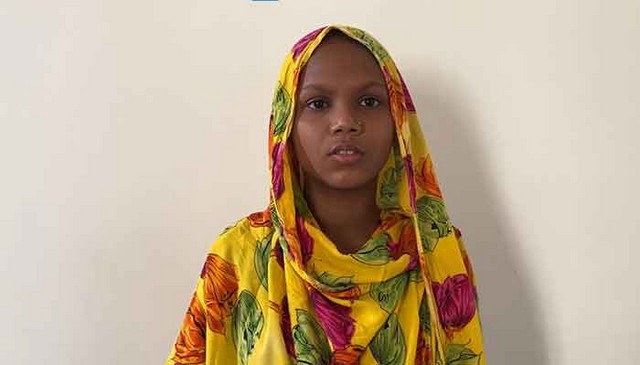By Arun Kumar & Jonita Colaco
‘Will there be singing in the times of darkness
Yes there will be singing about the darkness’
— Bertolt Brecht
Par kabhi socha hai
Jo Govandi mein rehete hain
Unka kya hota hai
Vote dene wala
Har ghareeb rota hai, kyun?
This is an excerpt from 15-year-old Sania Mistree’s rap that she wrote during the lockdown. “Rap is a powerful medium and I want our voices to be heard,” says Sania, who lives in Shivaji Nagar (Govandi), M East Ward of Mumbai. The feisty teenager began rapping two years ago to speak about the difficulties faced by the urban poor.
Sania is a Class 10 student and lives with her parents and younger brother. Her father rides a rickshaw, while her mother runs a small provision kiosk in the area. When the government imposed the lockdown on 25 March 2020, her family was one of the many who were left with no means to sustain themselves. According to a study by Apnalaya, an NGO that works with the urban poor through a multi-dimensional approach, 47% of the population in Shivaji Nagar reported having zero income during the lockdown.
M East Ward is ranked the lowest out of 24 wards in Mumbai with respect to the human development index. Civil Society Organisations (CSO) believe that more than 12 lakh people live in M East Ward, as compared to the government figures of 8.07 lakh. Of this, 77% live in slums, with a large population living in Shivaji Nagar, the largest slum cluster in the ward.
With a population close to 6,00,000, Shivaji Nagar has no school for secondary education, in addition to the poor infrastructure and lack of healthcare facilities. In a post-Covid study, Apnalaya found that 47% of Shivaji Nagar residents had reported having no income during the lockdown, while 56% people took loans, especially to buy ration and water. Over 13% people migrated, and many moved within Shivaji Nagar to cheaper areas. The people depended on NGOs for their food, and claimed the government’s response was slow and inadequate. Sania pithily captures the situation, what many would consider an archetype voice from the slums of Mumbai:
Koi iss baat pe insist nahi karte
Ki hum sarkaar ke liye exist nahi karte
Amid the pandemic, while children from privileged backgrounds were attending schools online, the ones from the slums felt ignored, as they could not afford access to the digital world. Upset Sania chose to express her angsts through this hard-hitting rap. “I associate with rap music because I can convey my feelings and speak about the distress of my community in a rhythm,” she says. “Children in slums also want to study, but they do not have the means for it.”
Hai sab kuch chal raha online,
Band hai kitaab,
Train sari band hain
Par bik rahi sharaab
School saare band hain,
Hai padhai online
Bachha chatting mein ghusa hai
But let it be fine, yeah!
Sania is aware that there were huge problems in her area during the lockdown, and people had to flee the city with no means to sustain themselves. She detests the fact that they are routinely left to fend for themselves and politicians who come asking for votes and make lofty promises are invariably missing from the scene. “Nobody helped us during the lockdown,” she adds. “It was only the NGOs who were looking out for us.”
Kyun ki mahamari hai
Public bechari hai
Phir bhi dikha rahi hai
Neta-giri nakhre
Waade bade wakhre
Vote mil gaya,
Ab chal baaju hat re?
Coming from an orthodox Muslim family, the path to music wasn’t easy for her. Her poetry, however, defies her age. It is alive to all-pervasive inequities. To resist, she writes. She found inspiration in Emiway Bantai and Vivian Fernandes, better known by his stage name DIVINE, who shot to fame after the release of Bollywood film Gully Boy. “Their words have the power to touch people and inspire them, and that is exactly what I aim to do,” Sania shares.
Par in sab baaton se pare
Sab yahi baat bataa rahe
Sanitizer lagana
Chalo theek hai
Ab dooriyan badhana
Chalo theek hai
Zaroori mask hai lagana
Chalo theek hai
Band milna milana
Chalo theek hai…
Sania was 14 when Apnalaya, during its 2018 event, Ye Bhi Hai Mumbai, Meri Jaan, encouraged her to perform her first rap about the life in slums. Today, Sania’s friend Taufiq Shaikh, a Class 7 student, accompanies her with his beatboxing. “When my friend refused to teach me, I decided to learn beatboxing myself and get better at it,” he says. Sadia joins Sania in chorus. These teenagers are a powerhouse of talent in more ways than one. Sans any formal training, they have self-taught themselves rap, listening to successful rappers on YouTube. What is truly remarkable is their ability to talk about their everyday lives, pick up their moments of hardships and turn them into a song that seeks to inspire and encourage others to change what is not right about today.
She signs off with these words:
Kaafi jazbaat hain jatane ko
Kaafi baat hai bataane ko
Zubaan phir bhi khaamosh hai
Log kehte hain chup ho jaane ko
Let’s hope her voice is never silenced.
Apna Adda – Sania Taufiq and Sadiya (Rap)
Arun Kumar has worked with Social Purpose Organisations for over two decades.
Jonita Colacois a Project Supervisor with the Citizenship and Advocacy team at Apnalaya, an organisation that works towards the upliftment and empowerment of the urban poor.
8 January 2021
Source: countercurrents.org

